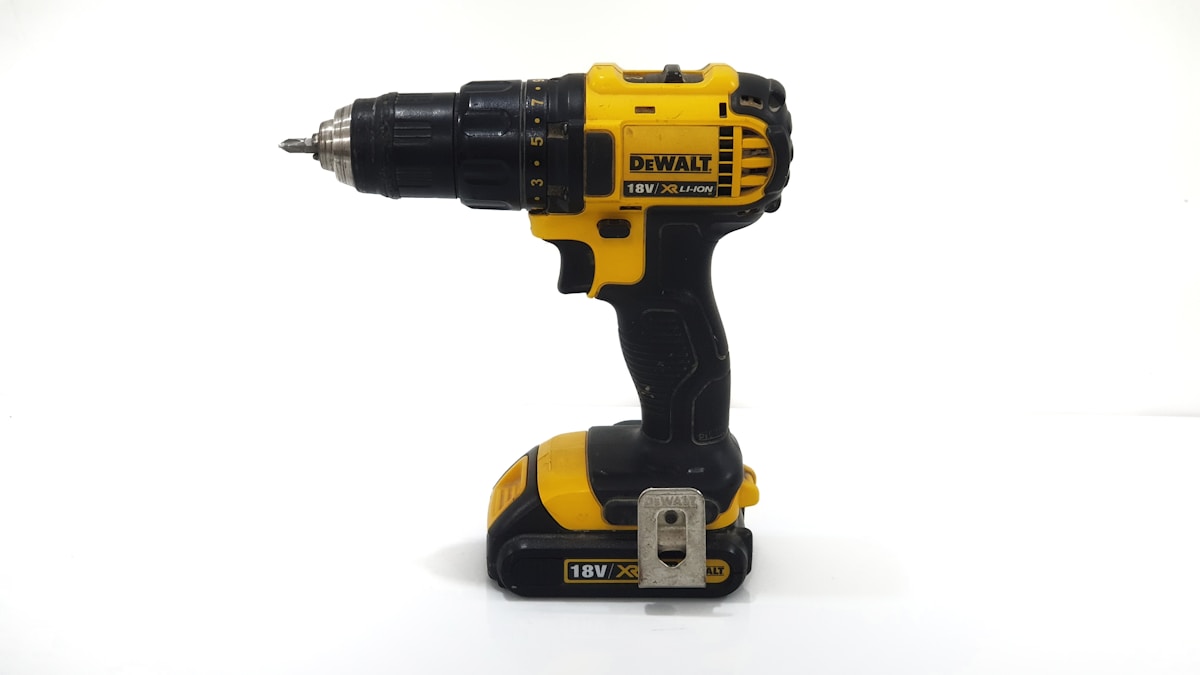Wood Drill Bits: Choosing the Right Bit for the Job
The variety of drill bits available can overwhelm woodworkers. Different bit designs suit different materials and applications. Understanding these differences helps you select the right bit for clean, accurate holes every time.
Brad Point Bits
Brad point bits feature a sharp center point surrounded by cutting spurs and relieved flutes. The center point positions the hole precisely; the spurs score the wood before the main cutters engage, preventing tearout.
Best Uses
Precision holes in solid wood where clean edges matter. Dowel holes, shelf pin holes, and any application where accuracy and appearance count. The center point prevents walking on entry.
Limitations
Brad points work best perpendicular to the surface. Angled holes can cause the center point to wander. They’re designed for wood—don’t use them on metal or masonry.
Twist Bits

Standard twist bits—the ones most people picture when thinking “drill bit”—have helical flutes and a chisel-point tip. They’re versatile but not optimized for wood.
Best Uses
General-purpose drilling where precision isn’t critical. Pilot holes for screws. Any situation where you need a hole and don’t have a wood-specific bit handy.
Limitations
The chisel point tends to wander on entry, especially at an angle. Entry and exit holes may tear rather than cut cleanly. These bits work adequately but not excellently in wood.
Forstner Bits
Forstner bits cut flat-bottomed holes with clean sides. A center point locates the hole while rim cutters define the circumference. The flat bottom distinguishes Forstners from other bit types.
Best Uses
Hinge cup mortises, counterbores for washer seats, shallow decorative recesses, and any flat-bottomed hole. Overlapping holes for mortising. Angled holes where other bits would wander.
Limitations
Forstner bits cut slowly and generate significant heat. Use drill press speeds appropriate to diameter—larger bits need slower speeds. Hand drilling with large Forstners is difficult.
Spade Bits

Spade bits feature a flat blade with a center point. They remove material aggressively and cost little. The simple design has both advantages and drawbacks.
Best Uses
Rough holes in construction framing. Running wires through studs. Applications where hole appearance doesn’t matter. Budget-conscious hole drilling in non-critical work.
Limitations
Exit holes tear badly without backing material. The aggressive cutting action can grab in hardwoods. Holes aren’t as clean as brad point or Forstner results. Don’t use for furniture-quality work.
Auger Bits
Auger bits feature a threaded center point that pulls the bit into the wood, deep flutes for chip ejection, and cutting spurs that score the circumference. Traditional hand brace bits used this design.
Best Uses
Deep holes in thick stock. Timber framing connections. Applications requiring clean holes through significant depth. The self-feeding design reduces fatigue in hand-powered drilling.
Limitations
Power drill use requires speed control—self-feeding can be aggressive. Backing out can be difficult if chips pack the flutes. Generally overkill for shallow holes in furniture work.
Countersink Bits
Countersink bits cut the conical recess that allows screw heads to sit flush or below the surface. Some designs combine pilot hole drilling with countersinking in one operation.
Best Uses
Preparing screw holes for flush-mounted fasteners. Combination bits size the pilot hole and countersink for specific screw sizes. Essential for furniture where exposed screws need hiding.
Limitations
Match the countersink angle to your screw heads (usually 82 degrees for wood screws). Cutting too deep prevents proper head seating. Practice depth control on scrap.
Plug Cutters
Plug cutters create wooden plugs matching your project material. The plugs fill counterbored screw holes, hiding fasteners under matching wood rather than filler or contrasting plugs.
Best Uses
Creating grain-matched plugs from project offcuts. The hidden fastener look beats any store-bought plug. Match plug cutter diameter to your counterbore size.
Bit Quality and Care
Quality Matters
Cheap bits dull quickly, cut roughly, and break under stress. Quality bits from reputable manufacturers cost more but perform better and last longer. Invest in commonly used sizes.
Sharpening
Brad point and Forstner bits can be resharpened with files and stones. The investment in sharpening skills extends bit life considerably. Badly damaged bits may need professional resharpening.
Storage
Store bits where cutting edges can’t contact each other or other metal. Index cases, wooden blocks with holes, or individual sleeves all protect your investment. Rust prevention matters for long-term storage.
Speed and Feed
Larger bits need slower rotation speeds. Drill presses with speed adjustment work best for large Forstners and augers. Feed pressure should produce steady chip ejection without excessive heat.
Let the bit cut—forcing creates heat, dulls edges, and can cause grabbing. Withdraw periodically from deep holes to clear chips and allow cooling.
Essential Bit Sets
Start with a brad point set covering common sizes (1/8″ through 1/2″). Add Forstner bits as specific projects require them—hinge cups often need 35mm, shelf pins need 1/4″ or 5mm. Build your collection based on actual needs rather than buying complete sets you won’t use.


